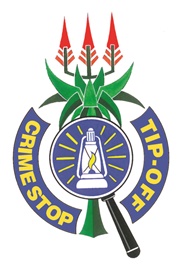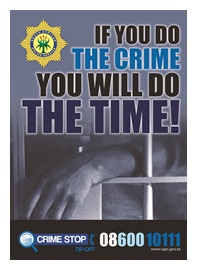Article and photos by Kotie Geldenhuys
When someone knows about criminal activities, they often do not know where to go with the information without placing themselves in harm's way. The solution for this problem is Crime Stop, specifically its share call number 08600 10111 or the MySAPS mobile app or USSD string *134*10111#. But the question these people may ask is who deals with this information and how? Servamus recently visited the Crime Stop office and call centre at the SAPS Head Office in Pretoria to learn more about the work they do.
Servamus spoke to Col Naas Rossouw, the Section Commander of Crime Stop who told us that Crime Stop provides a platform where people can anonymously blow the whistle on criminal activities "without becoming involved in the sometimes-demanding criminal justice proceedings". But how and where did it all start?
It all started in New Mexico in the USA, in July 1976, when Detective Greg MacAleese investigated the death of a student who was fatally shot during a robbery at a filling station in Albuquerque. But as there were no witnesses or any other leads to help him with the investigation, he knew that he had to come up with a plan to see whether he could locate possible witnesses. If he could not, the case would go unsolved. Not ready to give up on the investigation, the detective contacted a local television station to do a reconstruction of the crime scene. He provided a special telephone number and guaranteed anonymity for anyone who was willing to call him with information about the student's murder. He also offered a reward (out of his own pocket) to encourage people to provide information that could help to solve the case. It was not long before he received information and within 72 hours after the crime, two men were arrested and charged with the murder as well as with numerous armed robberies. Realising that this way of gathering information could be useful in solving other cases and with the help of the public, media and law enforcement, the detective started a movement. This evolved into an extensive network of Crime Stoppers organisations around the world affiliated to the Crime Stoppers International Foundation (SAPS, nd and Crime Stoppers International, nd).
In South Africa, Crime Stop was started in Sophiatown, Johannesburg during 1991. In 1994, when South Africa held its first democratic elections, Crime Stop played a vital role as they received anonymous tip-offs about places where intimidation of voters occurred and about violence and threats that aimed to create instability. Noticing the value of the Crime Stop programme, the management decided to continue with the programme and the call centre was moved to the SAPS Head Office in Pretoria. In 2001, the Crime Stop toll-free number was changed to the share-call number 08600 10111 which is used to this day.
played a vital role as they received anonymous tip-offs about places where intimidation of voters occurred and about violence and threats that aimed to create instability. Noticing the value of the Crime Stop programme, the management decided to continue with the programme and the call centre was moved to the SAPS Head Office in Pretoria. In 2001, the Crime Stop toll-free number was changed to the share-call number 08600 10111 which is used to this day.
Col Rossouw told Servamus that the South African Crime Stop programme is based on the pillars of Crime Stoppers International. "To run a Crime Stop programme in a country, they must be part of Crime Stoppers International. If a country does not allow anonymity, they cannot run a Crime Stop programme. South Africa is the only country in the world where the Crime Stop programme is funded by the police," he said. He added that Crime Stop is regarded as one of the most successful "tip-off" services in the world. Tip-offs can range from drug-related offences, theft, environmental crimes, fraud, wanted suspects, sexual offences, offences violating children and planned criminal activities, to name a few.
******************************
[This is an extract of an article that is published in Servamus: March 2023. The rest of the article looks at the difference between 10111 number and the Crime Stop share-call number; providing a tip-off to Crime Stop; the importance of providing as much information as possible; the call centre; dealing with tip-offs; training of call centre agents; and tip-offs result in saving lives. If you are interested in reading more, send an e-mail to: This email address is being protected from spambots. You need JavaScript enabled to view it. or a WhatsApp to: 078 712 1745 to find out what you have to do. Ed.]








